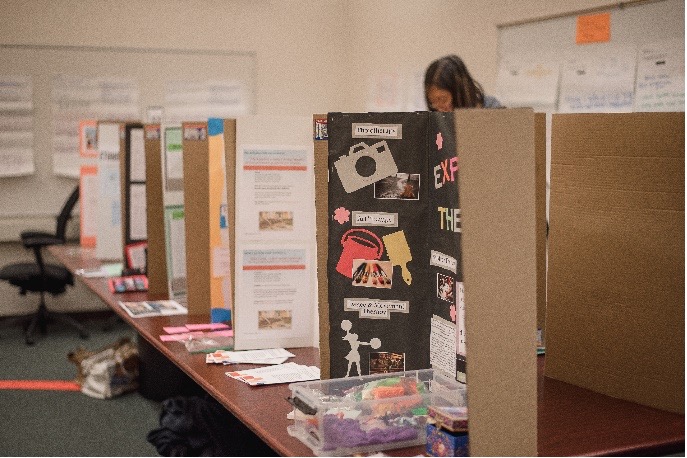Hi, my name is Sondra LoRe, PhD, and I am the interim director and co-founder of the National Institute for STEM Evaluation & Research (NISER) at the University of Tennessee Knoxville. In addition, I teach for the Evaluation, Statistics, and Methods (ESM) program at UTK in the evenings. Last Spring I read Kevin Gannon’s book Radical Hope: A Teaching Manifesto as the world seemed to explode into chaos. The book was validating and soothing, and one that I have pointed to at least a dozen times in the last eighteen months in my teaching of emerging evaluators and educators.
The brain is a pattern-seeking device. It looks for connections in the world to make sense of what is happening. Culturally responsive teaching, in a brain-compatible way, means that we must embrace the practice of being mindful of diversity, equity, and inclusion as educators.
After nearly two decades of teaching and the pleasure over that last five years of growing a national evaluation center, I relish the evenings when I have the opportunity to teach graduate students in our evaluation program. Hungry for ways to bring real-world and current events into our learning over the last three years, we have created a Superstar Social Scientist Journal each semester.
The Superstar Social Scientist Journal has three goals:
- Connect the historical theorists (often the “founding fathers”) in the required readings to a modern-day researcher in the field.
- To shine a light on and celebrate the successes of evaluators and researchers from a broad scope of groups involved in change-making evaluation work.
- Challenge students to explore ways to participate in culturally response social science research and evaluation.

Qualitative Research Celebration of Learning (Dec. 2019, Univ. of TN) Photo by Charaya Upton
How it works:
- Purposeful connection: layer course readings with modern examples.
- Model the process: do it together! Take time in class to discuss the process make the scrapbooks and talk about impacts to research, communities, and evaluation practice.
- Make this a student-led initiative. Invite the students to find and select these superstars for their scrapbooks. As the educator, be their conduit for discussion but make it their own.
- Celebrate the learning. Give students the space to share what they have learned. For us, this looks like a celebration of our scrapbooks on the last night of class where we invited friends and family to take part. Here is a link to Dr. LoRe’s Qualitative Research Celebration of Learning assignment directions: https://drive.google.com/file/d/1LP-UXZQm49T-bavTqEoKAsbX7I3Vws1E/view
What it looks like:
- Pre-COVID, our journals were on paper. I provide students a blank journal. We print pictures and methods figures, cut and paste the pieces inside with our reflections.
- In our online classes, we build out scrapbooks in Jam Board https://jamboard.google.com.
Rad Resources:
Blog posts, podcasts, webinars, and podcasts bring a rich and modern connection to teaching and learning of program evaluation and research. Here are a few of my student’s favorite Superstar Social Scientists in action:
- Reach.Teach.Talk. With Nat Damon, Culturally Responsive Teaching Informs Relational Teaching with Zaretta Hammond (November 2020) https://open.spotify.com/episode/7CowiTLoEQcD1GDjclsriY?si=cfwHV1SGQoiuZBsjOPwZRw
- Dana Wanzer: EvaluLand: The Land of Evaluation podcast https://evaluland.fireside.fm/
- Ayesha Boyce: Attending to culture, diversity, and equity in STEM Program Evaluation Part 1 & 2 (May 1st & 2nd, 2018) https://evalu-ate.org/authors/ayesha-boyce/
- Storytelling with data Podcast: Storytelling with data #2 What is story? https://storytellingwithdata.libsyn.com/storytelling-with-data-2-what-is-story
- Academic Womxn Amplified: Q&A with Qualitative Research Blueprint Creator Maira Quintaniha https://podcasts.google.com/feed/aHR0cHM6Ly9hY2FkZW1pY3dvbWFuYW1wbGlmaWVkLmxpYnN5bi5jb20vcnNz
The American Evaluation Association is celebrating TOE TIG Week with our colleagues in the Teaching of Evaluation Topical Interest Group. The contributions all this week to aea365 come from our TOE TIG members. Do you have questions, concerns, kudos, or content to extend this aea365 contribution? Please add them in the comments section for this post on the aea365 webpage so that we may enrich our community of practice. Would you like to submit an aea365 Tip? Please send a note of interest to aea365@eval.org. aea365 is sponsored by the American Evaluation Association and provides a Tip-a-Day by and for evaluators. The views and opinions expressed on the AEA365 blog are solely those of the original authors and other contributors. These views and opinions do not necessarily represent those of the American Evaluation Association, and/or any/all contributors to this site.
